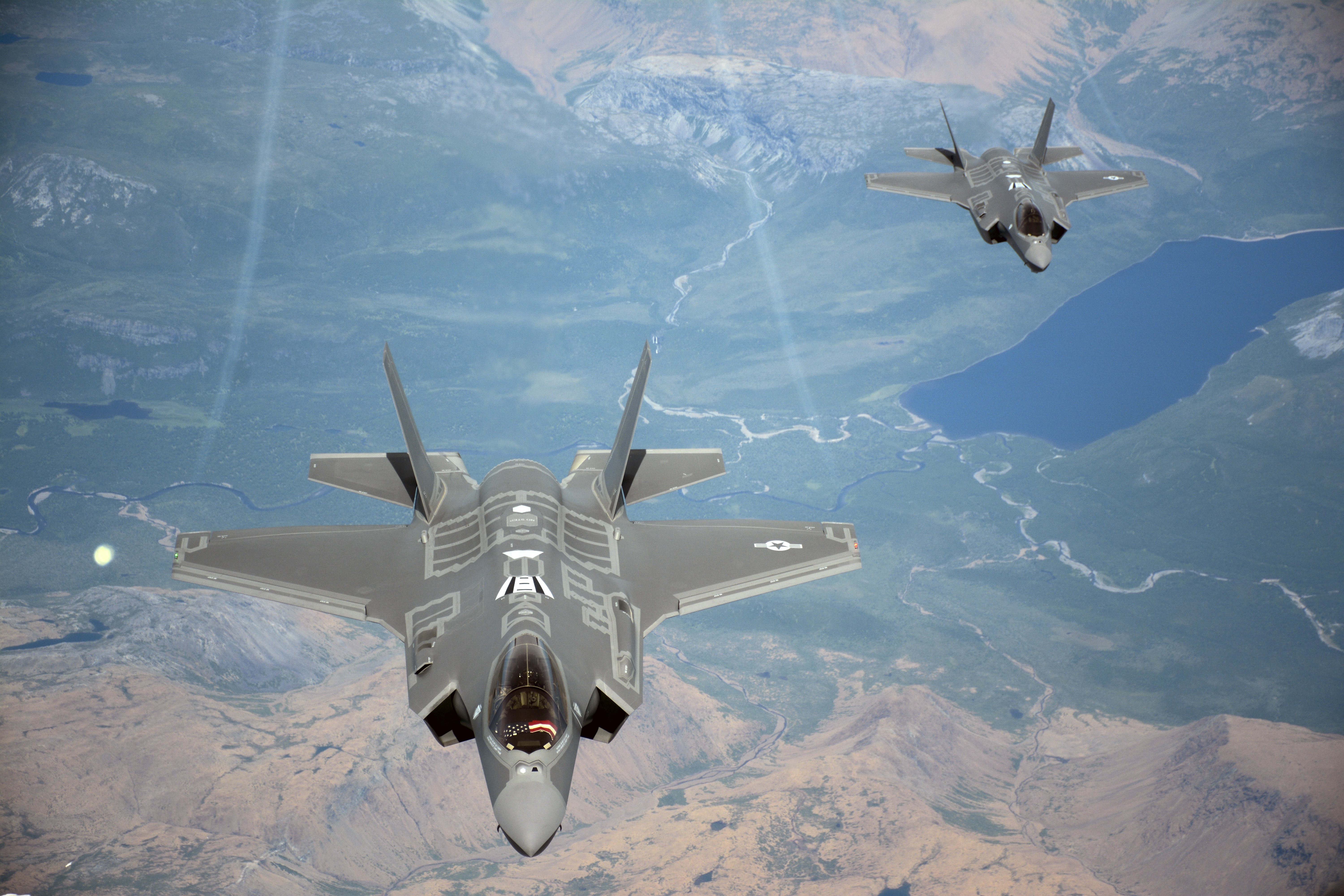
THE PENTAGON – Turkey is being excised from the F-35 Lighting II Joint Strike Fighter program, and the U.S. will pay an estimated $500 to 600 million to retool the program in the aftermath, the Defense Department’s acquisition chief told reporters on Wednesday.
Ellen Lord, undersecretary of defense for acquisition and sustainment, said Turkey’s acceptance of a Russian S-400 anti-air missile system last week put the F-35 program at risk, and international partners in the Lockheed Martin-built fighter program reached a consensus to remove Ankara from the program.
“I have clearly said Turkey cannot field a Russian intelligence-collection platform in proximity to where the F-35 program makes repairs and houses the F-35,” Lord said.
“Much of the F-35 strength lies in its stealth capabilities, so the ability to detect those capabilities would jeopardize the long-term security of the F-35 program. We seek only to protect the long-term security of the F-35 program.”
Turkey was set to not only buy 100 of the F-35A variants of the fighter but also was part of the larger international industrial base for the program.
“Turkey will certainly and regrettably lose jobs and future economic opportunities from this decision. It will no longer receive more than $9 billion in projected workshare related to the F-35 over the life of the program,” Lord said. “Turkey made more than 900 parts for the F-35 and had been assigned more than $1 billion in industrial participation across 10 Turkish suppliers.”
Lord said that the Defense Department had set aside $500 to 600 million in “non-reoccurring engineering” to retool the industrial base to make up for the loss of Turkish companies in the program. The industrial base would begin a “deliberate” process of removing Turkey for the supply chain by March. For the time being, the replacement suppliers will be American.
In a statement, jet builder Lockheed Martin said the company “has been partnering closely with the U.S. government and our supply chain to minimize impact to the F-35 program. Over the last several months, we’ve been working to establish alternative sources of supply in the United States to quickly accommodate Turkey’s current contributions to the program. These actions will limit any future production or sustainment impact, and we remain on track to meet our commitment of delivering 131 F-35s this year.”
Additionally, about 25 Turkish pilots and maintainers assigned to the program were informed on Wednesday they would no longer given access to the spaces at the F-35 Joint Program Office and were set to return to Turkey.
Lord and Deputy Under Secretary of Defense for Policy David Trachtenberg reaffirmed Turkey’s key role in NATO, highlighted future exercises in which Turkey was a participant. They sought to narrow the disagreement to the F-35 and the S-400 system that didn’t spill over to the larger alliance.
The pair did not directly answer questions from reporters if the inclusion of the S-400 system in Turkey would preclude the country from joining in other aspects of NATO’s missions. Prior to Turkey’s purchase of the Russian system, Washington and Ankara were unsuccessful in sealing a foreign military sales deal for Turkey to buy the PAC-3 Patriot anti-air missile batteries.
Over the last several years, Russia has been working to perfect using different types of lower-frequency radars to provide targeting-quality tracks of stealthy aircraft – particularly the F-22 Raptor and the F-35. Pentagon reasoning, USNI News understands, was that it would be an unacceptable risk to allow a Russian radar to gather a treasure trove of signals intelligence data from the F-35s that Turkey would own and operate.





